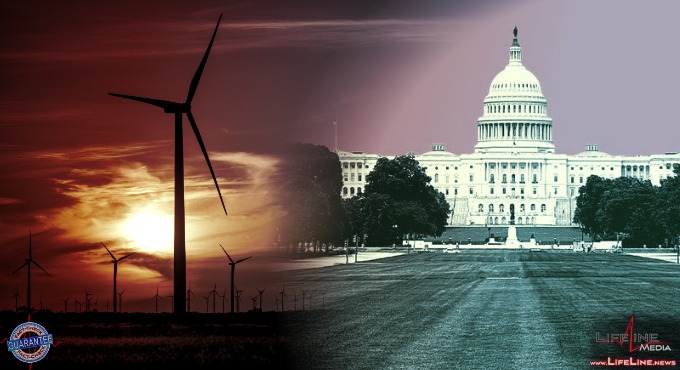How Expanding Energy Drilling Could Unlock Billions and Shape America’s Economic Future

FACT-CHECK GUARANTEE
Political Tilt
& Emotional Tone
The article predominantly presents the Republican plan positively, emphasizing conservative fiscal and energy policies aligned with GOP priorities.
Generated using artificial intelligence.
The tone is mostly neutral with slight positivity when discussing the Republican strategy, balanced by cautionary points from environmental concerns.
Generated using artificial intelligence.
Updated:
Read
House Republicans are advancing a new strategy to pay for President Trump’s tax cuts: expanding energy development on federal lands and offshore areas.
Their plan, which they claim could generate more than $15 billion, focuses on increasing oil, gas, and coal leasing rather than raising taxes or cutting public programs.
Central to the proposal is a significant expansion of lease sales. Lawmakers want at least four new sales in Alaska’s Arctic National Wildlife Refuge (ANWR) over the next decade — a region that has long been at the center of America’s energy and environmental debates.
The plan would also revive lease sales in the National Petroleum Reserve-Alaska, restart quarterly onshore oil and gas auctions nationwide, and require new offshore lease offerings.
Republicans argue that tapping into these domestic resources will generate substantial revenue to help cover the cost of tax cuts, all without additional burdens on taxpayers. They say this approach avoids painful tax hikes or cuts to essential services.
Proponents frame the plan as a win-win for fiscal responsibility and economic growth.
“We’re showing you don’t have to choose between a strong economy and a balanced budget,” one GOP leader said. For Republicans, it also aligns with their belief in limited government, particularly regarding energy production.
Supporters contend that allowing the private sector to develop America’s vast resources will boost jobs, spur economic growth, and move the country closer to energy independence — a key Trump administration goal.
They see this as a practical way to strengthen the economy while reducing reliance on foreign energy suppliers.
Debate Over Environmental Impact and Political Prospects
There is also a national security argument.
With more domestic drilling, Republicans say the U.S. becomes less dependent on unpredictable foreign sources. Increased American oil and gas production could mean lower prices for consumers and greater control over national policy — an advantage they consider vital in an uncertain world.
Not everyone is convinced.
Environmental groups are raising alarms about drilling in sensitive areas like ANWR, warning of risks to wildlife and fragile ecosystems. They argue that opening these lands sets a dangerous precedent and undermines efforts to combat climate change.
Republicans push back, insisting that modern technology allows for responsible extraction that balances economic benefits with environmental protection. “If we tie our own hands,” one lawmaker said, “we just send jobs and money overseas.”
Tying tax cuts directly to resource development is a calculated move by House Republicans — a mix of fiscal conservatism, support for American industry, and what they view as sensible use of national assets.
They hope this approach can serve as a model for future policies: cut taxes, grow domestic industries, and use America’s own resources to pay for it all.
The House Natural Resources Committee is preparing legislation to mandate these expanded lease sales. While President Trump has not yet issued an official statement, the White House is widely expected to support the plan, given its alignment with his priorities.
Democrats are preparing for a fight, citing environmental dangers and questioning whether the revenue projections are realistic. They argue that the long-term costs to ecosystems and climate could far outweigh any short-term fiscal gains.
Republicans remain confident their plan will resonate with voters who care about jobs, energy security, and keeping taxes low. Whether this approach will pass Congress — or withstand legal and political challenges — remains uncertain.
For now, the proposal marks a clear attempt by Republicans to link economic growth with what they call commonsense management of America’s natural wealth. The debate over balancing fiscal policy, energy needs, and environmental protection is far from over.

Join the discussion!
Be the FIRST to comment on ‘BOLD GOP Plan: Will Opening Federal Lands for Energy Pay for Trumps Tax Cuts or Cost US More?’